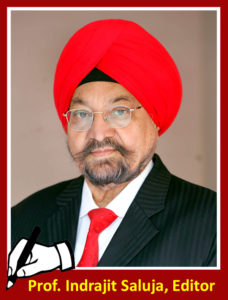
- Death of an Individual is not the end of an idea
 In the heartland of India, a battle is raging. The agrarian community of Punjab, resilient and united, is on a warpath, demanding fair prices for their produce and an end to oppressive government policies. The conflict has escalated as the government, seemingly serving the interests of capitalist cronies, remains adamant on enforcing controversial agricultural laws. This struggle, reminiscent of the past, echoes a powerful truth – the death of an individual does not extinguish the flame of an idea.
In the heartland of India, a battle is raging. The agrarian community of Punjab, resilient and united, is on a warpath, demanding fair prices for their produce and an end to oppressive government policies. The conflict has escalated as the government, seemingly serving the interests of capitalist cronies, remains adamant on enforcing controversial agricultural laws. This struggle, reminiscent of the past, echoes a powerful truth – the death of an individual does not extinguish the flame of an idea.
A year ago, the farmers took to the streets, demanding the repeal of certain agricultural laws imposed by the Modi government. The initial response from the government was repression, attempting to stifle the movement. However, the farmers, standing united and supported by their counterparts from Uttar Pradesh and Haryana, refused to back down. Faced with the strength of this collective resolve, the government succumbed to pressure, promising to reevaluate and revise its agricultural policies.
Despite assurances, the government failed to initiate substantial changes in agricultural policies. Disillusioned, the farmers resumed their struggle, realizing that the promises made were nothing more than empty words. The government’s lack of action fueled the flames of discontent, prompting the agricultural community to intensify their protests.
In a disturbing turn of events, the BJP-led government, both at the central and state levels, unleashed repressive measures against the protesting farmers. Border points between Punjab and Haryana were barricaded to thwart the march to Delhi. The use of water cannons and, shockingly, reports of firing upon peaceful farmers became tools employed by the authorities to crush the dissent.
The conflict reached a critical juncture when, as claimed by agitating farmers’ leaders, a 21-year-old award winning farmer Shubhkaran Singh was shot in the head by the Haryana police. Despite police denials of any firing, numerous farmers sustained injuries in the alleged incident. The agitating leaders also reported the disappearance of several farmers, accusing the government of using such tactics to instill fear among the protesting community.
The government’s heavy-handed approach seems to be rooted in a short memory. A year ago, similar repressive measures failed to deter the farmers. The authorities forget that the death of an individual does not equate to the death of an idea. History is replete with examples of ideas that survived the demise of their proponents.
Reflecting on history, we find poignant examples of individuals whose ideas endured despite their tragic deaths. Mahatma Gandhi, an apostle of non-violence, was assassinated by Nathuram Godse, who subscribed to the Hindutva ideology. Yet, Gandhism remains alive, shaping the moral fabric of societies worldwide. In the United States, Martin Luther King Jr., a champion of civil rights, was assassinated, but his vision persists, inspiring movements for civil liberties, justice and equality globally.The Punjab farmers’ struggle embodies the unbroken spirit of individuals united by a common cause. The government’s attempts to suppress dissent through repressive measures might temporarily subdue the protests, but history has shown that the death of an individual does not extinguish the flame of an idea. The farmers’ fight for fair prices and agricultural autonomy transcends individual tragedies, evolving into a movement that refuses to be silenced. As the echoes of protests reverberate, it serves as a stark reminder that ideas born from the collective consciousness of a determined community can withstand the harshest of challenges, ensuring that their voices are not easily silenced or forgotten.




Be the first to comment